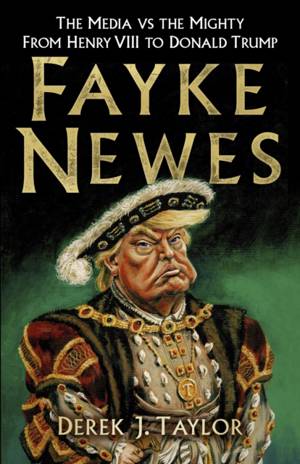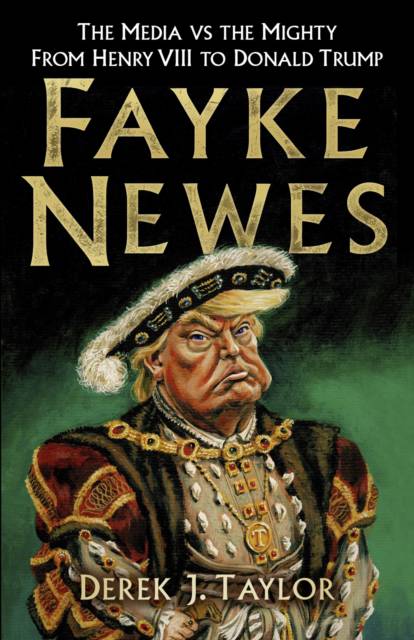
- Afhalen na 1 uur in een winkel met voorraad
- Gratis thuislevering in België vanaf € 30
- Ruim aanbod met 7 miljoen producten
- Afhalen na 1 uur in een winkel met voorraad
- Gratis thuislevering in België vanaf € 30
- Ruim aanbod met 7 miljoen producten
Zoeken
Fayke Newes
The Media Vs the Mighty, from Henry VIII to Donald Trump
Derek Taylor
Paperback | Engels
€ 15,45
+ 30 punten
Omschrijving
"Fake news." "Psycho." "Enemy of the people." The insults President Donald Trump and the media hurl at each other are, in fact, nothing new. Over many centuries, journalists have accused governments of being "horrible monsters," with "guilty consciences," while reporters have been branded "poisoners of the people" putting out "false fables." Ever since the invention of the printing press, those in positions of power have seen mass communication as a dangerous threat, usurping their ability to tell people what to think, and capable of stirring up discontent and even rebellion. Historian and international journalist Derek J. Taylor tracks the story of what's been a long, bloody and messy war, and discovers that neither side has always had clean hands. He takes us from Henry VIII's reign when writers and printers were executed, to the later struggles for the right to a free press, to the media's battles with the governments of President Richard Nixon and Prime Minister Tony Blair. Taylor ends with the social media revolution, which has put mass communication in the hands of ordinary people, as well as those of a certain U.S. president.
Specificaties
Betrokkenen
- Auteur(s):
- Uitgeverij:
Inhoud
- Aantal bladzijden:
- 360
- Taal:
- Engels
Eigenschappen
- Productcode (EAN):
- 9780750987783
- Verschijningsdatum:
- 1/11/2018
- Uitvoering:
- Paperback
- Formaat:
- Trade paperback (VS)
- Afmetingen:
- 130 mm x 196 mm
- Gewicht:
- 408 g

Alleen bij Standaard Boekhandel
+ 30 punten op je klantenkaart van Standaard Boekhandel
Beoordelingen
We publiceren alleen reviews die voldoen aan de voorwaarden voor reviews. Bekijk onze voorwaarden voor reviews.











